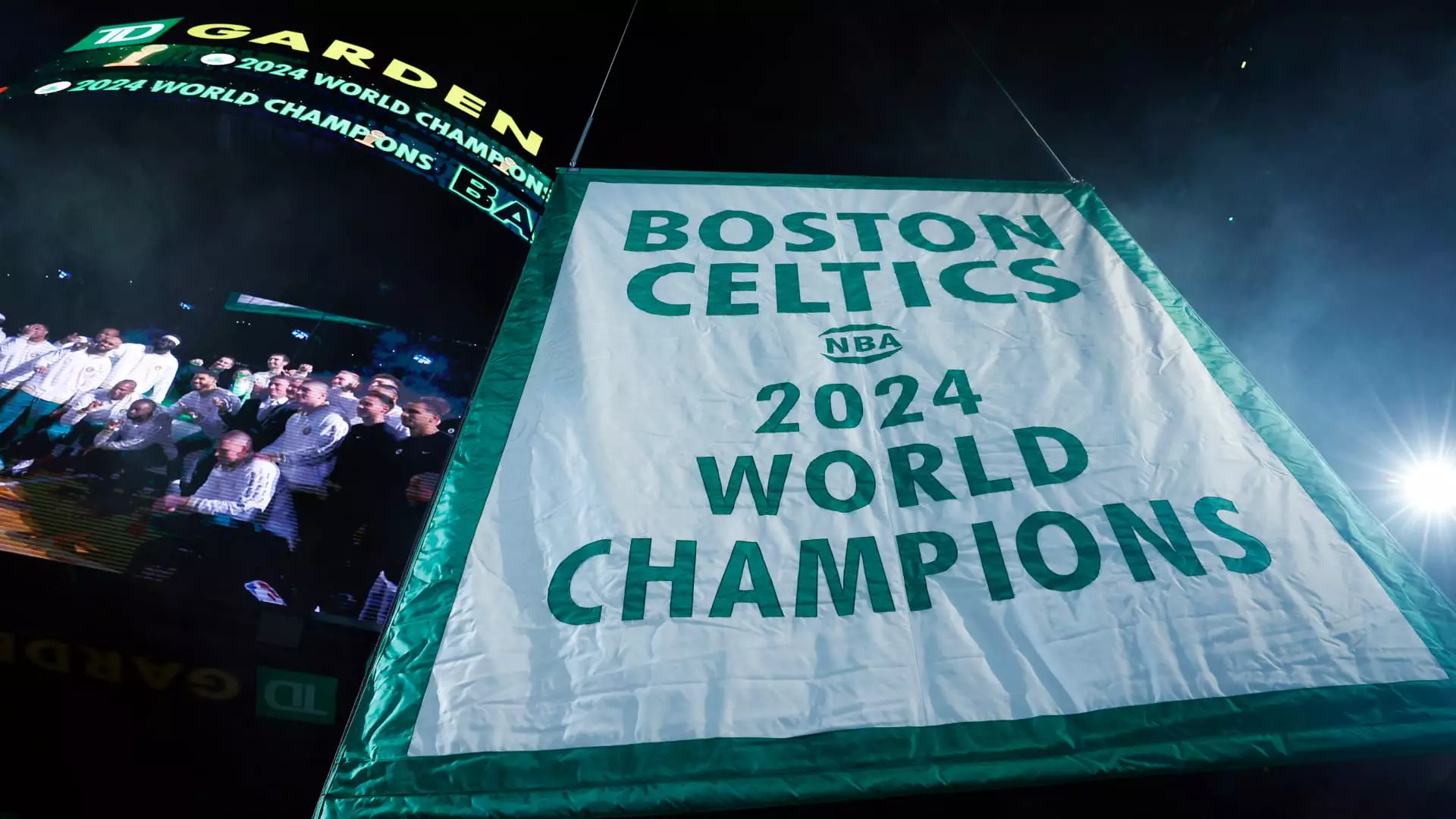With the Boston Celtics’ recent announcement that they are being sold to a private equity-led group for a staggering $6.1 billion, the implications reach far beyond the hardwood floors of TD Garden. This sale, the largest in U.S. sports history, signals a shift in how franchise ownership is shifting away from traditional family-run businesses towards more complex, corporate structures. The ownership group, led by Bill Chisholm, who generously pledges his loyalty to the Celtics, brings together an eclectic mix of professionals that could very well redefine what it means to be a supporter of a team. The very existence of a franchise as sacred as the Celtics, steeped in history and community ties, being pried open by private equity marks a troubling trend that risks commodifying the heart of the team.
Private equity has often been viewed with skepticism in various industries. Their motives are primarily financial, driven by the need to generate swift returns on investment. While it’s encouraging to see local fans like Chisholm involved, the inclusion of firms like Sixth Street raises questions about potential conflicts between profit motives and community responsibility. Can someone who holds a multi-billion-dollar stake truly grasp the emotional connections between a team and its fans? The Celtics are not just a team; they embody a heritage, a culture, and an expectation that goes beyond playing basketball. Understanding this profound bond demands more than financial acumen; it requires heart.
The Diversity of Ownership Stakes
Bill Chisholm’s assertion about the responsibilities he acknowledges as the de facto leader is commendable but also somewhat naïve. It alludes to an ideal of community engagement while operating in a reality where profits reign supreme. When a single entity, especially one influenced heavily by private equity, controls a franchise, the potential for varied leadership styles diminishes. The ranks of owners will inevitably see discussions about profit margins taking precedence over strategic decisions for cultural enrichment, community service, or long-term vision.
The Celtics’ previous ownership under the Grousbeck family aimed to foster a familial atmosphere, characterized by deep-rooted Bostonian loyalty. Today’s announcement may dilute this essence by shifting how decisions are made. The new ownership’s commitment to retaining the existing leadership until 2028 may ensure continuity, but it raises concerns about how much influence those in charge will actually wield in the larger scheme of profitability.
Increasing Corporate Tensions in Sports
As sports become increasingly lucrative, the rivalry between franchises shifts from competition on the court to conflicts on spreadsheets. Valuations are soaring, and with the staggering media rights deals — such as the NBA’s recently negotiated 11-year contract worth $76 billion — franchises are morphing into investment vehicles rather than community institutions. The question looms: do these transactions leave fans further alienated from their beloved teams? Watching a game, once a communal event, may soon feel more like spectating at a corporate presentation.
Boston Celtics’ impressive history of 18 championships speaks volumes about their stature in the NBA. However, at what cost does this heritage persist? If affluent investors wield unfettered control, are we simply shirking from life-long fans who have a genuine desire to nurture the team’s mission? The introduction of private equity into the sports landscape exemplifies broader financial dynamics, where individuals or families face significant hurdles in acquiring teams. The shift may be undeniable, but what happens to the soul of the Celtics and its retention of local identity?
Financial Gains vs. Community Connection
The staggering valuation of $6.1 billion raises a deceptively attractive image. However, with soaring prices comes a risk of disconnection. It is crucial to challenge the idea that stronger financial backing results inevitably in better performance on the court. The Celtic spirit, cultivated through years of trials and triumphs, may get overshadowed in the quest to drive revenue. The team may win titles, but what about winning over the community?
As we herald this new era, we must be cautious about the growing rift between the ethos of sportsmanship and the machinery of corporate finance. Will the legacy of the Boston Celtics evolve into a wider branding machine, or will it remain a community -fueled powerhouse? We stand at a crossroads where greed and solidarity converge, and on the other side lies the fate of not just the Celtics, but the very fabric of sports in America.

